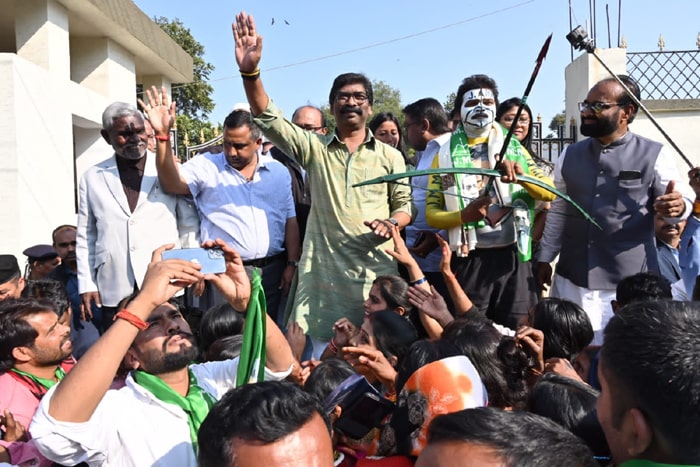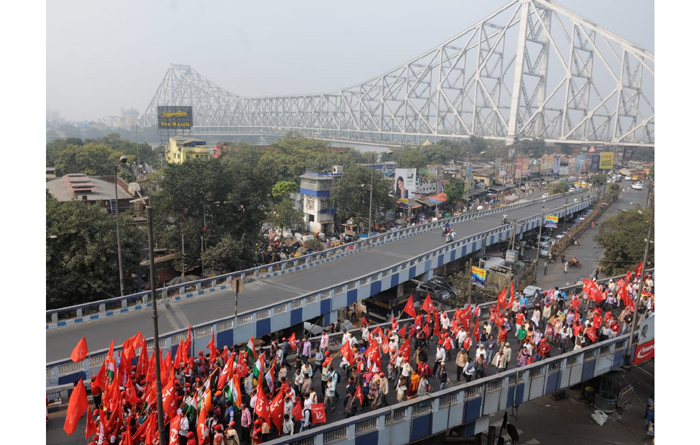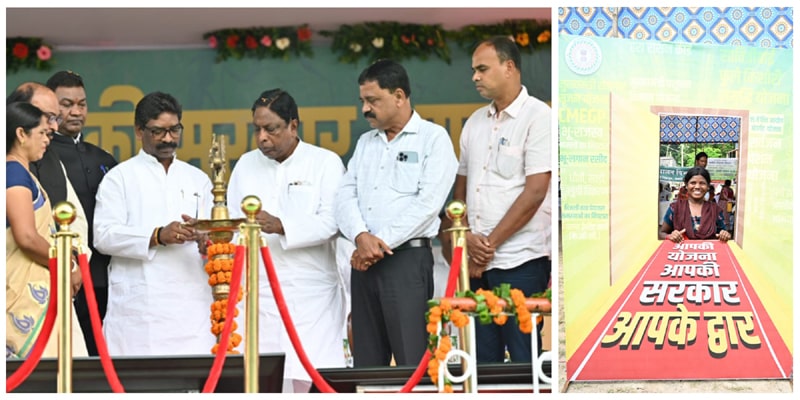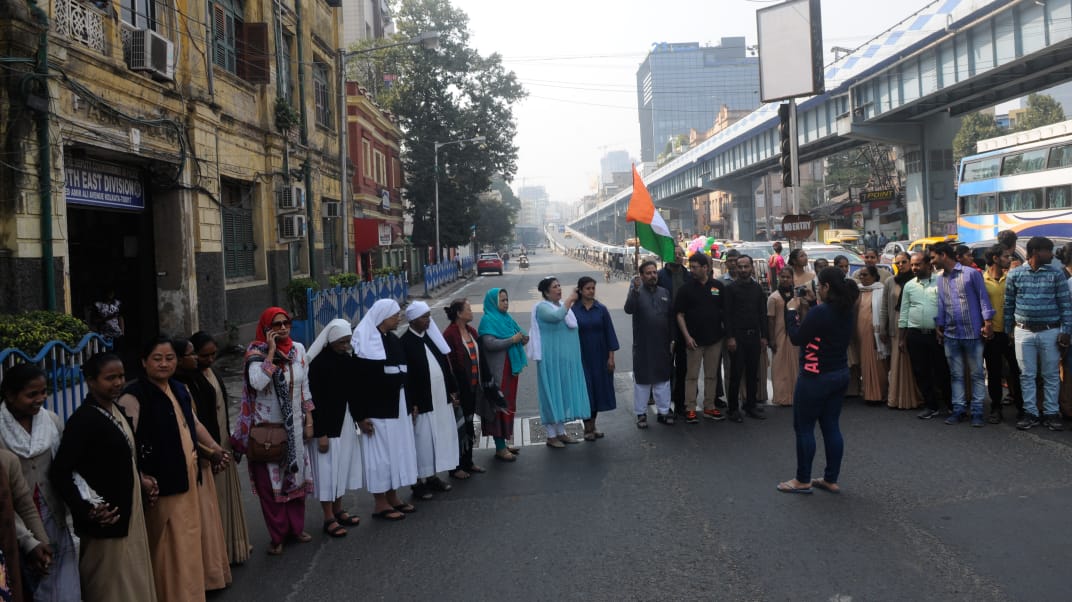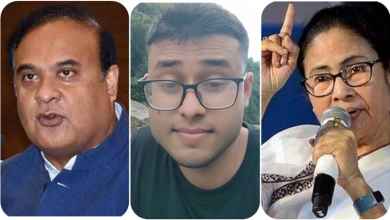Another youth falls victim to BSF bullets, MASUM writes to the rights body
Ekramul Miya, a 24-year-old was shot dead by the BSF. But police refuse to file a widow's complaint for allegedly shooting her husband to death

Kolkata: A 24-year-old youth has been allegedly shot dead by the Border Security Force at the India-Bangladesh border, a fact-finding team of MASUM, a non-government organization which works for the human rights of residents living around Indo-Bangladesh border reported about it.
Ekramul Miya, a resident of Chhoto Madhusudan village under Sitalkuchi police station area of Cooch Behar district was shot directly without any warning, 500 meters within the Indian territory near Bangladesh border by the on-duty BSF personnel attached with Nalangibari Border Outpost, 169 Battalion, MASUM mentions in its report.
The NGO has written to National Human Rights Commission, on the alleged killing.
The incident took place on June 23 itself. However, local police are yet to register a complaint made by Ekramul’s widow.
ASUM’s fact-finding team has mentioned that the deceased Ekramul Miya, was a small-time smuggler. But he resorted to this illegal means of living to sustain his family. MASUM, works along the India-Bangladesh border, spanning over 2000 kilometers, claims that there is not much option left for the locals for legal works, as BSF does not allow them to work properly, be it farming or fishing.
On 25th June, MASUM conducted a social audit at Serampur in which at least fifty victims of BSF’s extra-judicial acts had recorded their statements of extra-judicial killings, torture, denial of livelihood by the forces before retired judges and other dignitaries.
Kirity Roy, secretary of MASUM had told eNewsroom, “Every year over 200 people are killed along the Indo-Bangladesh border. Not only that, torture, rape, molestation, denial of livelihood, and imposition of 144 CrPC are taking place with impunity. India also shares a border with Bhutan and Nepal, but it is not under BSF and it is not that violent. The time has come for the NHRC, West Bengal human rights commission and other concerned departments and officials to wake up as several innocent people are getting killed.”
On August 18, on Ekramul’s incident, the secretary wrote to NHRC, “According to our fact-finding report, it was revealed that Ekramul Miya was involved in illegal cross-border smuggling to get some extra income for his family. The victim is a poor labourer, who was involved in cross-border smuggling to survive and sustain his family.”
It further mentions, “Even after the victim’s widow complaining, police and administration has turned deaf ears to her pleas. The brutal incident raises several questions about the safety and security of Indian citizens residing along the border. Who is to blame if a person resorts to illegal means to survive and sustain his family? What is the highest punishment for cross-border smuggling; is it the death penalty? Does the BSF have the authority to grant death sentence to someone they think is guilty? Does the BSF have judicial powers to grant ruling over the Indian citizenry? Such incidents bring shame to the country’s criminal justice system and is a violation of the Indian Constitution. The autopsy report has revealed that the bullet was fired from close range and there were several blackish wounds over the left sacrum and lumbar area of the deceased victim, which means the victim was tortured first and then was shot from close range. From the post-mortem examination report, we can apprehend that its a case of custodial death by the BSF. They first apprehended the victim and tortured him heavily and then fired at him from close range.”
The human rights activist also mentioned, “As it is a case of custodial death by the BSF, the inquest of the body should be done by one judicial magistrate as per section 176 (1) (a) of the Code of Criminal Procedure. But in this case, the inquest was done by one police person of Mathabhanga Police Station and one executive magistrate which violated sections 174 and 176 (1) (a) of the Criminal Procedure Code.”
And pointed out, “The incident violates the rights guaranteed in Article 21 of Indian Constitution and the premise of Article 6 of International Covenant on Civil and Political Rights as well as the Goal No. 8 and 16 of Sustainable Development Goal earmarked by United Nations and in both these international instruments; the government of India is a party and have an agreement. The perpetrators also violated Articles 2, 3 and 8 of the Code of Conduct for Law Enforcement Officials; Adopted by General Assembly resolution 34/169 of 17 December 1979 and basic tenets of the Eighth United Nations Congress on the Prevention of Crime and the Treatment of Offenders.”
The deceased victim was the sole earning member of the family. Killing the victim by the BSF thrashed the family members of the victim into more poverty. While the Government of India has been considering implementing the United Nations Sustainable Development Goals within 2030 and where the first goal is to reduce poverty, the agent of the government (here BSF) by killing the victim pushes them into the face of extreme poverty.
Kirity Roy, MASUM secretary’s June 25 interview to eNewsroom:
The letter added: Family members of the deceased victim have only two bighas of cultivable land. That agricultural land is situated beyond the barbed wire but that is also within the Indian Territory. The Central Public Works Department constructed this barbed wire 500 meters distance from the International Border Pillar (IBP). They have to face obstacles and illegal restrictions by the BSF when they go to cultivate the land situated beyond the barbed wire. The right to decent work is recognized in the Universal Declaration of Human Rights, which has provisions dealing, not only with “the right to work”, but with the various aspects of decent work, including just and favourable conditions of work, protection against unemployment, equal pay and social protection. In connection with this case, we find that the deceased victim was migrant labour for nine months and for the rest of three months he worked as day labour or was sometimes involved in smuggling activities. The government failed to provide job security to the victim. Article 41 of the Constitution of India enjoins upon the State, the duty to secure the social and economic rights of the people. The Government of India has been considering implementing Goal number 8 of the Sustainable Development Goals which promotes sustained inclusive and sustainable economic growth, full and productive employment and decent work for all but ultimately the government could not keep its words.
MASUM demand from NHRC:
- The whole incident must be inquired about by the investigation wing of the Commission.
- As the extra-judicial killing takes place and a firearm is used by the BSF and as a result of that one death occurred, an FIR to that effect shall be registered and the same shall be forwarded to the Court under section 157 of the Code of Criminal Procedure without any delay.
- The Cooch Behar district administration must follow the guidelines laid down by NHRC in the case of “Encounter Death”.
- This unlawful death should be properly investigated in line with Minnesota Protocol.
- The unnatural death case initiated by the Mathabhanga Police station vide Mathabhanga PS U/D case number 83/22 dated 24.06.2022 must be properly investigated.
- Specific case under section 302 IPC to be started against perpetrator BSF attached with Nalangibari Border Out Post, 169 Battalion.
- Criminal Charge should include causing disappearance of evidence of an offense against the perpetrators in uniform
- An independent investigation into the incident must be investigated by the CID.
- The guilty BSF personnel involved must be booked and prosecuted in open court.
- The family of the victim must be compensated.
- Security and safety of the witnesses and the family of the victim must be protected.
- The BSF must be posted on actual borders and not inside villages.
- To stop infiltration and to check to smuggle the BSF must be posted on the actual border and not inside the territory.
- To stop the smuggling activities governments must take proper steps to implement the MNREGA programme and construct Border Hut at the bordering populace.
- Government should take appropriate steps so that the United Nations Sustainable Development Goals will be implemented by the year 2030, the letter mentioned.
After the publication of this story, if BSF tells its side of the matter, we will publish it too.


